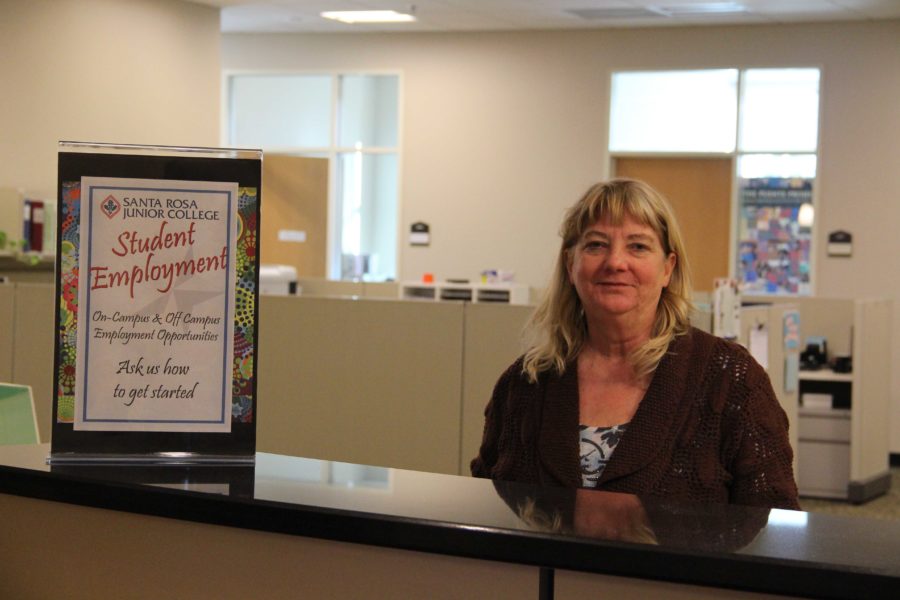For many graduating college students, searching for a job is a priority. But the last three to four years the U.S. economy has looked bleak.
According to an article posted in The New York Daily News, based on a Rutgers University study released in May 2012, “Nearly 50 percent of graduates over the last five years are unemployed or underemployed.” Despite the study’s results, many students are determined to find a full-time job in their major after graduating.
Advanced preparedness, possessing the right skills and having patience can help students and graduates find employment. “What we’re finding with students that are graduating is that they’re challenged with doing entry-level type jobs,” said Barbara King, Santa Rosa Junior College Student Employment Coordinator. “Someone might graduate in some very important field where they’re hoping to get this amazing job, but often times you have to do the grunt work.”
When a student or graduate works their way up in a company the old-fashioned way, this path helps them get into the company they want. “The other piece is having a breadth of skills, like computer skills, good written English skills, being professional in your attire with almost every job is what you have to have,” King said.
The SRJC Career Center and counseling courses can assist students in acquiring information about their chosen career field. Interested students can schedule appointments with SRJC career advisor Suzanne Papa for assistance using Career Center resources and finding information on local job market conditions for various majors. The center also helps with resumes, cover letters and interviews.
“I help students prepare for job interviews by researching the employer’s business and anticipating potential questions. I encourage students to learn how to network and not to rely on just one source for identifying opportunities,” Papa said. “Do some soul-searching and be objective about your skills and areas that need improvement.”
Numerous handouts and computerized resources, such as Career Café, careercrusing.com and Eureka, are also available at the Career Center to help narrow down a specific major.
Another successful strategy is to thoroughly research the career before investing your time and energy into it. “Whatever major or direction you choose, be sure to get experience in that field before you graduate. It can be volunteer, internship or paid, but it is wise to begin building a network and building your resume as soon as possible. Begin your job search two to three months before graduation. Keep the momentum going,” Papa said.
Elisha Garcia will transfer this fall for a philosophy or biology major. She may change directions to veterinary medicine due to her passion for working with animals. Garcia has already done her research, finding out information about her major and the school she wants to transfer to.
“I’d like to transfer to Michigan State University because they have an amazing vet program, but I have not taken all the courses I need. I’ve taken a little of everything else at the JC trying to figure out what I really want to do and it’s tough because everything is so great!” Garcia said.
Students can also learn about a career through SRJC’s Community Involvement Program, which enables students to learn about the career they want to major in and gives them an opportunity to serve their community.
Michelle Brady, an English major, remains optimistic. She plans to transfer to Sonoma State this fall and would like to teach high school English one day. Brady said she continues to research her career and its job market, and knows that if she wants find work in her chosen field that she may have to relocate.
“I go online to a teacher’s hiring statistics site, which lets you know the school district’s hiring needs for each county in California, so you can look at the areas hiring and hopefully apply for a job in the county you wish to live,” Brady said.
As for the job outlook, Brady thinks the economy will recover and demand for teachers will continue. She also believes a bachelor’s degree doubles her chances of finding employment. “I believe a degree will get me the employment I desire,” she said. “I have to be thoroughly educated in order to land the job I want.”
The job outlook for graduating college students seems brighter, especially in Sonoma County. According to a Press Democrat article published in January, the unemployment rate in Sonoma County has held steady at 7.7 percent since December 2012 despite an increase of 8,100 jobs in the county over the last year. The drop in the unemployment rate is a positive sign for all future college students and graduates.


